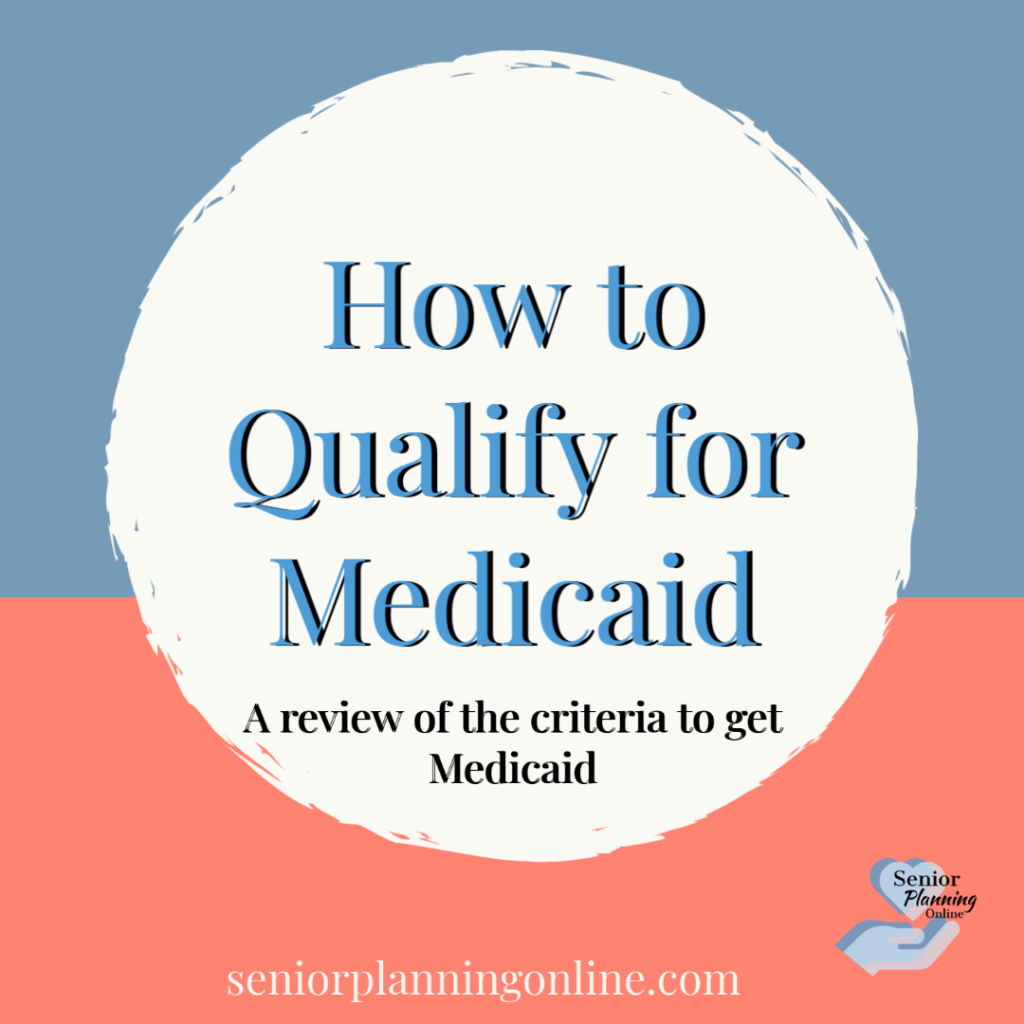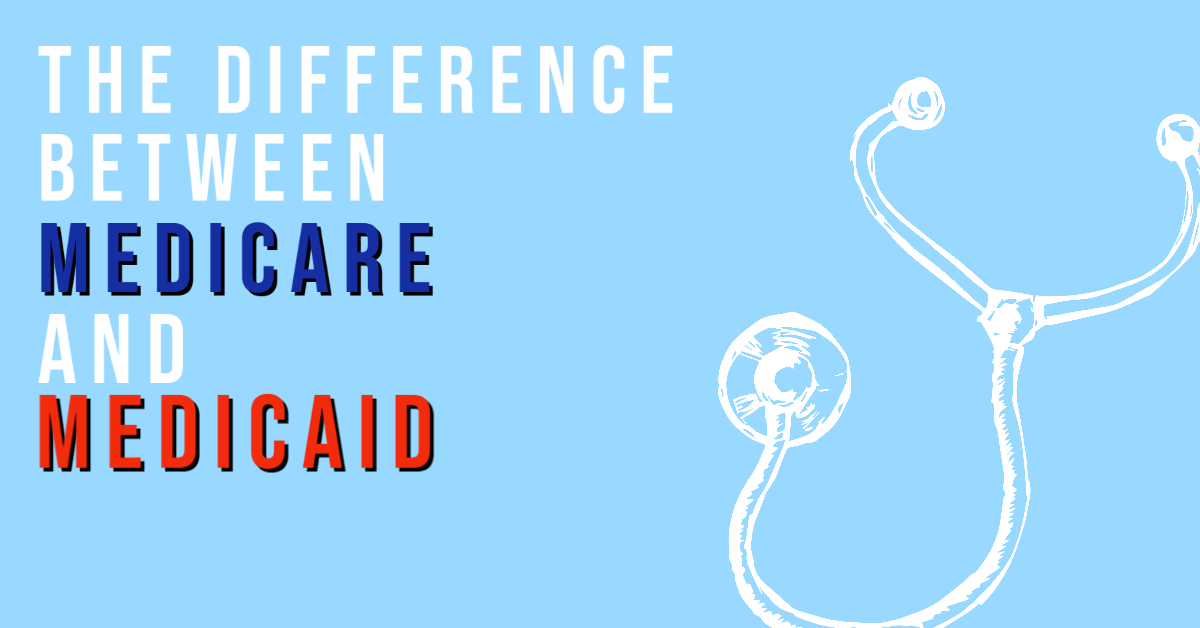I’m sure you have heard of Medicaid. It’s often confused with Medicare. So what is the difference? What is Medicaid? How do you qualify for Medicaid? What services are provided under Medicaid vs. Medicare?
I’m here to explain it all to you. Hopefully I can help clarify the difference and help you to determine if Medicaid is something you should consider for yourself or loved one. So let’s dive in…
If you want to know more about Medicare check out our post “What No One Tells You About Medicare Enrollment Period”
What is Medicaid?
Medicaid is a health insurance program created to serve Americans who are considered low-income, pregnant women, people with disabilities and seniors who need assistance with long term care.
The Medicaid program was signed into law in 1965 under President Lyndon B. Johnson and is funded by both the federal government and individual state funding.
Because of this, each State’s Medicaid program is different, they meet basic health needs state by Federal guidelines but can additionally offer additional programs depending on the State’s funding for the program.
So What is Medicare then?
Medicare is a health insurance program also signed into law in 1965 as an amendment to social security. It is designed to provide health benefits to the Senior population to guarantee health benefits.
As people retire, they no longer have access to employer health benefits and income often drastically declines and diminishes to be able to afford private health insurance. Just like social security, every tax payer pays into the medicare program as well.
At age 65 American citizens or permanent residents can automatically qualify for Medicare Part A without premiums.
Summary of the difference between Medicaid and Medicare:
Medicare– health insurance through the federal government for American citizens or permanent residents over the age 65. There are two other ways to obtain Medicare if you are under age 65, you would need to qualify for a disability through social security and apply for Medicare benefits, or you would need to have a diagnosis of End Stage Renal Disease requiring a kidney transplant or dialysis.
For information on how to enroll in Medicare, check out “What No One Tells You About Medicare Enrollment Period”
Medicaid– health insurance through the federal government and state government for low-income, pregnant women, people with disabilities that require extra care and seniors who need long term care.
What services does Medicaid provide?
There are general Federal mandatory services that States must provide under the Medicaid program.
They are very general guidelines which allows States the flexibility to provide additional services catered to what their State may need and how much of State funds they want to allocate to Medicaid.
Medicaid generally covers the following services in every state:
- Hospital Care
- Physician care and visits
- X-ray and imaging services
- Laboratory services
- Home Healthcare Services
- Nursing Home Services
- Prescription Drug costs
These are the basic costs covered by Medicaid in every U.S. state.
Some States provide additional services: such as Eye exams/care, Dental needs, additional home care services, transportation to medical appointments, behavioral health services, transplant needs, etc.
To find out what additional services your State’s Medicaid program provides, Check out our Resources page and choose your State to lead you to their Medicaid website.
You can also apply for the Medicaid program online.
How to qualify for Medicaid?

The Federal government provides funding to ensure States serve certain populations. Additionally, States can utilize their own funding to determine other populations to service and make their own eligibility requirements.
To be eligible for Medicaid services in any state, you must meet the following criteria:
- Children under 18 years old in families whose income falls 138% below the federal poverty line.
- People who are pregnant with income that is 138% the federal poverty line
- Some parents or caretakers with income that is 138% federal poverty line
- Seniors and people with disabilities that receive cash assistance through the Supplemental Security Income (SSI) program.
These are the minimum eligibility requirements. However, some States may alter the criteria to make it easier for some people to have access to Medicaid services.
The best way to find out if you are eligible for Medicaid program in your state is to go to your State’s website to find out their eligibility requirements.
What You Need To Know When Applying for Medicaid
Most if not all states have an online Medicaid application now. If you don’t have access to the internet, usually there is a paper application available as well.
If you need the paper version, you can go to your local library or contact your hospital social worker.
There are things the Medicaid application will ask for, and items you need to have readily available to you.
Make sure you have:
- Your Social Security number
- Proof of income (tax documents or bank statements)
- Proof of assets (real estate documents, investments, stocks/bonds, savings/checking accounts, motor vehicles, life insurance policies)
- Health Insurance information
If you are married, they will ask for your spouse’s information as well.
Can I Still Get Medicaid If I’m Married?
The biggest question I get from families about applying for Medicaid, is if their spouse’s needs will be taken into consideration.
A lot of the senior population that applies for Medicaid is needing Long Term Care placement. Their spouse can no longer care for them in the home.
Most States offer a waiver for spouses to help give them some protection.
If you are healthy but can no longer care for your spouse at home, there needs to be a way for you to survive as well! Medicaid takes this into consideration.
Medicaid usually allows the spouse to retain a house and a vehicle for themselves. The spouse’s needs for cost of living and their income level are considered.
Every State is different in how they determine the amount a spouse can keep and the amount the assets are worth. So you will definitely need to look into your State’s Medicaid eligibility. Again, you can find this on our Resources page!
Medicaid can be complicated. Especially if you have various assets. I would recommend consulting an Elder Law Attorney if you can.
The Medicaid Spend Down
Sometimes you will need to liquidate some assets in order to be eligible for Medicaid.
If you applied for Medicaid and were denied, it’s likely because you had extra assets that can be liquidated. Sometimes Medicaid will put you in a “Medicaid Spend Down” status.
This means that you are required to liquidate an asset and use the money from the liquidation to pay off any debts or to use towards care for you or your loved one.
It’s important that you only use the money for those two things: debts or care. If you give it to a family member, it is considered “gifting” and not allowed.
If you are in this Spend Down status, again, I would consult an Elder Law Attorney. They can help make sure you have the tools to get approved for Medicaid.


3 Responses
I’m a physical therapist and I often get this question as well. Thanks for breaking down the differences between Medicare and Medicaid. Great article!
This is such an informative article. I had a high level of knowledge on the difference between Medicare and Medicaid but didn’t know the intricate details. Thanks for explaining it in such a clear manner!
My sister would like to apply for Medicaid since this will help cover her medical expenses. Well, it’s a good thing that you shared here that this type of service is perfect for pregnant women and seniors. Thank you for clarifying here that this will cover x-ray and nursing home services too.